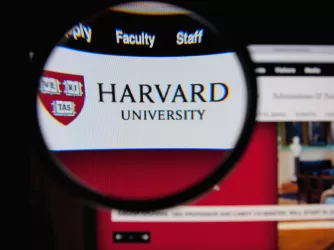Table of Contents
Poll: Majority of Americans believe First Amendment goes TOO FAR in the rights it guarantees

- 61% of Democrats and 52% of Republicans at least slightly agree that the First Amendment goes too far in the rights it guarantees.
- Half of Democrats — but only one-fifth of Republicans — think America is on the right track when it comes to free speech.
PHILADELPHIA, Aug. 1, 2024 — Fifty-three percent of Americans believe that the First Amendment goes too far in the rights it protects, according to a new poll by the Foundation for Individual Rights and Expression.
“Evidently, one out of every two Americans wishes they had fewer civil liberties,” said FIRE Chief Research Advisor Sean Stevens. “Many of them reject the right to assemble, to have a free press, and to petition the government. This is a dictator’s fantasy.”
Americans are crying out for censorship. Around 40% trust the government “somewhat,” “very much,” or “completely” to make fair decisions about what speech is considered terrifying, intimidating, threatening, harassing, annoying, disturbing, and indecent. Another quarter trust the government “a little.” And only 32% of Americans said they would be “not at all” comfortable with the government limiting the free speech of pro-Hamas protesters.

The new poll, conducted July 5-10, is the latest installment in the National Speech Index, a quarterly survey designed by FIRE and the Polarization Research Lab at Dartmouth College to gauge public opinion on freedom of speech. The 10-question survey consists of five permanent questions to track support for free speech and the First Amendment over time and five rotating questions to capture public opinion about topical and newsworthy speech-related issues.
Other findings:
- Only 5% of Americans believe that the right to free speech in the U.S. is “completely” secure, while 12% say it is “not at all” secure.
- The percentage of respondents who are “very” or “somewhat” worried about being fired because someone complains about their speech fell from 28% in April to 20% in July. (The survey was conducted before the wave of firings based on social media posts about the assassination attempt on former President Donald Trump.)
- 69% believe that the country is on the wrong track when it comes to free speech.
- 23% said they self-censor “fairly” or “very” often, down from 27% in April.
Not only do many Americans want to take a machete to the First Amendment, but it’s unclear whether they understand its bounds. A plurality of respondents said this spring’s campus pro-Palestinian protests should have been allowed to continue on free speech grounds. While many of the protests were lawful, some of the most high-profile protests included tent encampments, vandalism, and the occupation of buildings. These behaviors are not protected by the First Amendment and cannot be justified in the name of free speech.
“Americans have little tolerance for certain forms of protected speech and a lot of tolerance for unprotected conduct, when it should be the other way around,” Stevens said. “This poll reveals that the state of free speech in America is dire.”
The National Speech Index is a new quarterly component of America’s Political Pulse, an ongoing weekly survey conducted by the Polarization Research Lab, which will allow researchers to track shifting free speech sentiment in America over time. Each week, a sample of 1,000 individual YouGov panelists is surveyed on partisan animosity in the United States. All data and results presented are weighted to nationally representative demographic targets. The raw data file is available here.
The Foundation for Individual Rights and Expression (FIRE) is a nonpartisan, nonprofit organization dedicated to defending and sustaining the individual rights of all Americans to free speech and free thought — the most essential qualities of liberty. FIRE educates Americans about the importance of these inalienable rights, promotes a culture of respect for these rights, and provides the means to preserve them.
The Polarization Research Lab (PRL) is a nonpartisan collaboration between faculty at Dartmouth College, Stanford University, and the University of Pennsylvania. Its mission is to monitor and understand the causes and consequences of partisan animosity, support for democratic norm violations, and support for partisan violence in the American public. With open and transparent data, it provides an objective assessment of the health of American democracy.
CONTACT:
Jack Whitten, Media Relations Specialist, FIRE: 215-717-3473; media@thefire.org
Recent Articles
FIRE’s award-winning Newsdesk covers the free speech news you need to stay informed.

‘I hate freedom of opinion’ meme leads to sentencing in German court

Revoking Harvard’s tax-exempt status will threaten all nonprofits

Grandpa’s advice for the new wave of American censors


